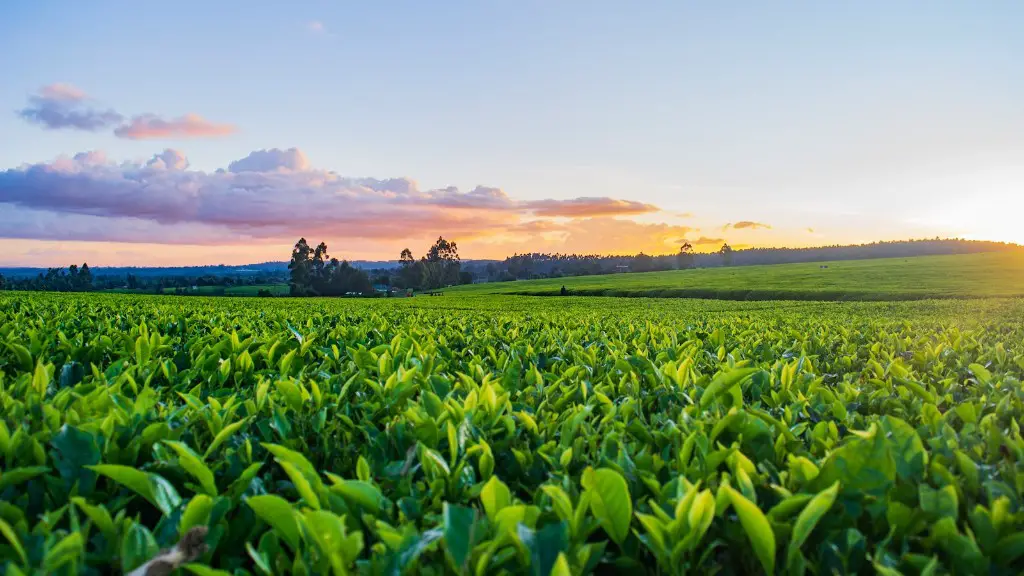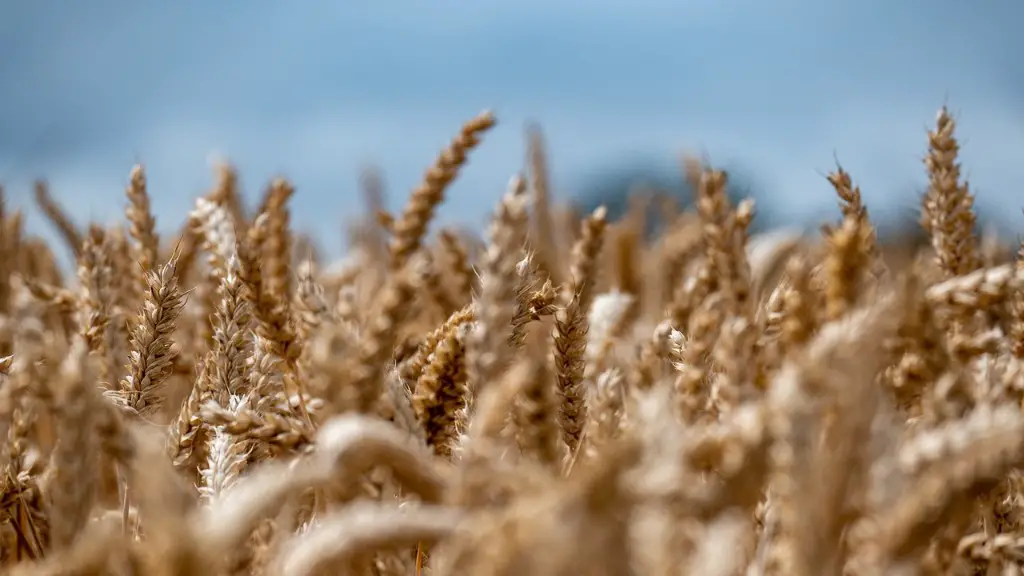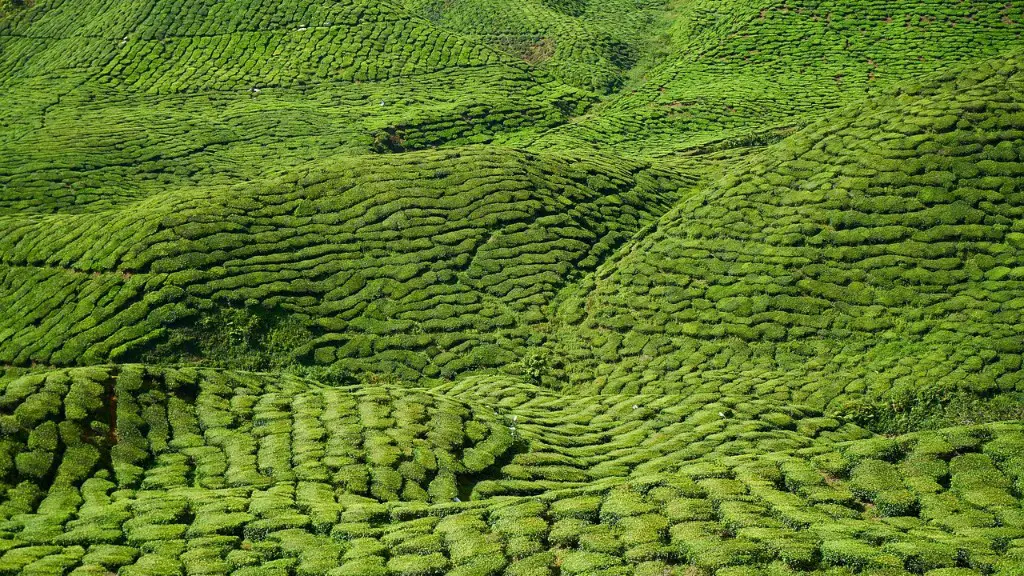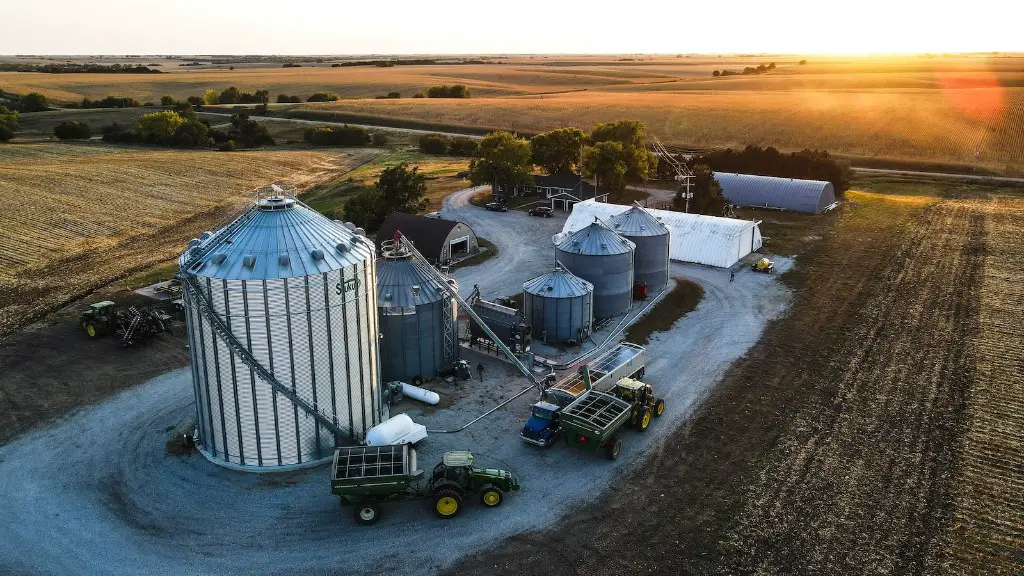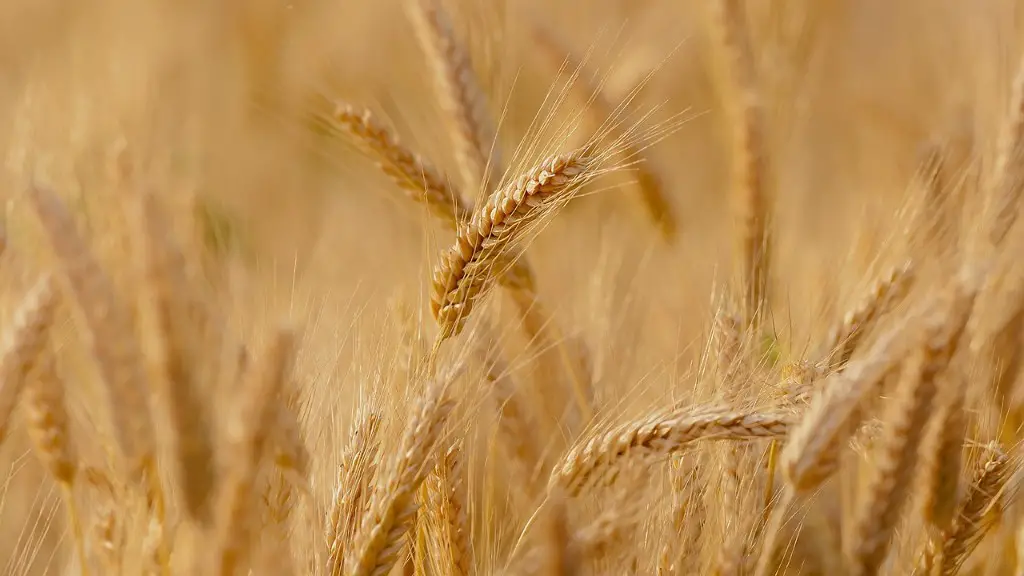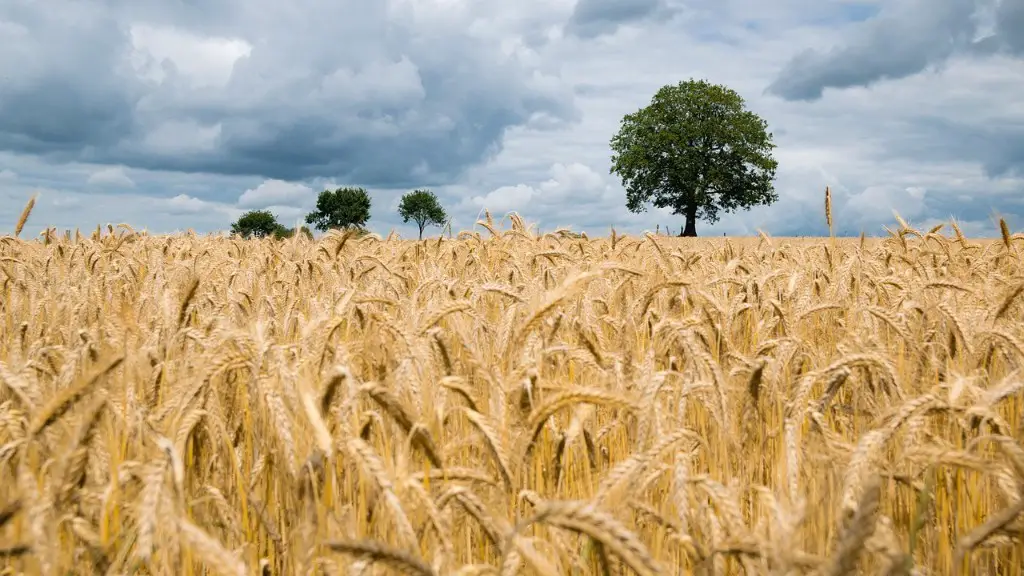Monoculture is a form of agriculture in which a single crop is grown in large quantities on a single farm. This type of farming is usually done on a large scale, with the crop being grown on thousands of acres of land. Monoculture is often used when the crop being grown is used for commercial purposes, such as food or fuel. While monoculture has its benefits, it can also lead to problems, such as a lack of biodiversity and soil erosion.
Monoculture is the agricultural practice of producing a single crop or plant species in a field or on a farm.
What is monoculture and why is it bad?
Monoculture crops are those that are grown in large fields with only one type of crop. These crops contribute to soil erosion because they are often grown on steep slopes or in areas with poor drainage. They also require more fertilizer and pesticide use, which can lead to environmental problems. A Cornell study found that pesticide use in the United States causes $520 million in crop loss and $11 billion in health costs. Therefore, it is important to consider the environmental impacts of monoculture crops before growing them.
The term monoculture is typically used in an agricultural context, and describes the practice of planting one species in a field. This can be contrasted with a more diverse planting, such as a meadow, which includes a variety of different species. Monoculture can have a number of advantages, including simplified management and increased efficiency. However, it can also lead to problems, such as decreased genetic diversity and increased susceptibility to pests and diseases.
What are the negative effects of monoculture
Monoculture farming is the practice of growing a single crop in a field. This type of farming can lead to a number of disadvantages, including damage to soil quality, increased use of fertilizers, susceptibility to pests, and increased use of pesticides and herbicides. Additionally, monoculture farming can damage the environment and lead to loss of biodiversity. Finally, monoculture farms are actually more susceptible to diseases, which can lead to lower yields.
Monoculture farming is a type of agriculture where a single crop is grown in large quantities on a farm. This method of farming has several advantages and disadvantages.
Some of the advantages of monoculture farming include:
-Specialized production: Monoculture farming allows farmers to specialize in growing a particular crop. This can lead to increased efficiency and higher yields.
-Technological advances: Monoculture farming often benefits from the latest agricultural technology. This can help to increase yields and improve the quality of the crop.
-High efficiency: Monoculture farms are often very efficient, with high yields per acre. This makes them more profitable than farms that grow a variety of crops.
-Greater yields of some produce: Monoculture farms can often produce greater yields of certain crops than farms that grow a variety of crops. This is due to the fact that they can focus all of their resources on growing a single crop.
Some of the disadvantages of monoculture farming include:
-Pest problems: Monoculture farms are often more susceptible to pests and diseases than farms that grow a variety of crops. This is because there is often a lack of diversity on these farms, which can
What is the biggest problem with a monoculture?
While raising a single crop may be easier in the short term, it can lead to serious problems in the long term. This is because monocultures lack the other plant and animal species that help to limit the spread of disease and control pests. This can lead to devastating outbreaks of disease and pests, which can ruin crops and lead to food shortages.
Monoculture farming is when farmers grow the same crop year after year on the same land. While this type of farming can be efficient in the short term, it can have negative long-term effects on the land, the crop yield, and the farmers themselves.
One of the biggest problems with monoculture farming is that it leads to soil degradation. When the same crop is grown in the same place year after year, the nutrients in the soil are depleted, and the soil becomes more compacted. This can lead to lower crop yields and, in extreme cases, the complete loss of productivity of the land.
Another problem with monoculture farming is that it increases the chances of pests, weeds, and diseases taking over the crop. When there is only one type of crop being grown, pests and diseases can quickly spread and become difficult to control. This can lead to total crop loss, which can be devastating for farmers.
Finally, monoculture farming can be very water-intensive. In areas where water is scarce, growing the same crop year after year can lead to water wastage and depletion of groundwater reserves. This can have a serious impact on the environment and the farmers who depend on the water for their livelihoods.
Why is monoculture an issue?
Monoculture crops are highly prone to blight and pests because of the lack of diversity. What many farmers will do is increase the usage of pesticides to protect the crops. In doing so, these chemicals affect the soil, water and other variables of growth.
Monoculture farming can be more efficient in terms of land usage and labor, as only one crop needs to be grown and cared for. However, it can also be more vulnerable to pests and diseases, as there is no diversity to fall back on if one crop is affected. Additionally, monoculture systems can lead to soil degradation over time, as the same crop is grown in the same place year after year.
What are pros of monoculture
There are several benefits to monoculture farming. One of the biggest advantages is that it is much more efficient than other methods of farming. When all the crops in a field are the same, farmers only need to use one uniform process to plant, maintain and harvest the crops. This allows farmers to work more efficiently and quickly because they can simply apply the same methods and treatments to each plant.
Another pro of monoculture farming is that it generally requires less land than other methods of farming. This is because farmers can pack more plants into a smaller space when they are all the same species. This is good for farmers who want to maximize their land usage.
Finally, monoculture farming can lead to higher crop yields. This is because the plants are all the same species and are not competing with each other for resources. This allows the plants to grow larger and healthier, leading to a better harvest.
The farming type by which farmers grow only crops is called monoculture or sole crop production farms. The crops grown in these farms include annual crops/trees and field crops, such as wheat, corn, rice, rapeseed, sugar cane, and cotton. Monoculture farming has several advantages, such as increased efficiency and productivity, but it also has some disadvantages, such as greater vulnerability to pests and diseases.
Is monoculture environmentally friendly?
Monoculture farming refers to the practice of growing a single crop on the same piece of land year after year. This type of farming pollutes the environment in several ways.
The increased use of inputs (fertilizers, pesticides, etc.) required to grow a single crop can pollute water resources and raise carbon levels in the atmosphere.
Soil erosion is accelerated when only one type of crop is grown on the same piece of land year after year. This can lead to pollution of waterways and the depletion of valuable topsoil.
Biodiversity is decreased when monoculture farming is practiced, as only one type of plant is being grown. This can have a negative impact on local ecosystems and the animals that depend on them for food and shelter.
Farmers are advised to implement diversified farming systems, such as crop rotation, to help mitigate the negative impacts of monoculture farming on the environment.
The loss of natural habitats and the conversion of biodiverse landscapes to single-species farms is having a profound impact on the world’s water cycle, according to new research.
The study, published in the journal Nature Geoscience, found that the loss of vegetation and other changes to the landscape are alteration the way water flows across the planet, making it more susceptible to drought and other forms of ecological instability.
The research was conducted by an international team of scientists from the University of Edinburgh, the University of California, USA, and the China Academy of Sciences.
They used a combination of satellite imagery, climate models and field observations to assess the impact of land-use change on the water cycle.
They found that the conversion of biodiverse landscapes to single-species farms has led to a reduction in the amount of water that is evaporated from the land and returned to the atmosphere, known as the ‘evapotranspiration’.
This, in turn, is causing a decline in rainfall, which is leading to more frequent and intense droughts.
The findings have major implications for global food security, as the majority of the world’s food is grown on single-species farms.
The study highlights the need for
Does monoculture improve soil health
The effect of monocropping on soil health is significant. This practice depletes the soil of nutrients, reduces organic matter in soil and can cause significant erosion. all of which lead to a decline in soil productivity over time. In addition, monocropping can also increase the spread of pests and diseases, as there is less diversity in the crops being grown. As a result, it is important to rotate crops and to use other practices that help to maintain and improve soil health.
Monocultural farming can have a negative impact on soil fertility and crop yields. This is because a single species of plant can quickly consume all the available nutrients in the soil, without returning any back to the soil. Over time, this can lead to nutrient-poor soil and reduced crop yields.
What countries are monoculture?
While the suppression of different ethnic groups within a society is one manifestation of monoculturalism, it can also manifest as the active preservation of a country’s national culture via the exclusion of external influences. Japan, South Korea, and North Korea are all examples of countries that have adopted this form of monoculturalism. By actively preserving their national cultures, these countries are able to maintain a sense of cohesion and identity within their societies.
Polyculture is another name for intercropping, which is the opposite of monoculture. In monoculture, only one species of crop or animal is kept together, while in polyculture, multiple species are grown together. Polyculture can have many benefits, including increased yield, reduced pest and disease pressure, and improved soil health.
Warp Up
Monoculture in agriculture is the practice of growing a single crop or plant species on a piece of land. This can be done for economic reasons, such as to maximize yield, or for environmental reasons, such as to restore a natural ecosystem.
Monoculture in agriculture is the practice of producing or growing a single crop or plant species in a given area. Monoculture is often used in industrial agriculture and factory farming, where a large amount of land is dedicated to a single crop. This can lead to problems such as soil depletion and the spread of pests and diseases. Monoculture can also refer to the culture of a single animal species in a given area, such as factory farming of chickens.
